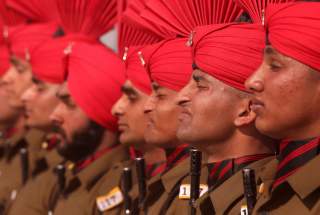India and Pakistan's Crisis Means a New Arms Race
Strategic instability remains and New Delhi's attempt at calling Islamabad's nuclear bluff didn't work.
Nevertheless, in view of India’s growing appetite to achieve escalation dominance and establish itself as a regional and global power, space for limited military action exists if any one side exhibits irrational behavior during a crisis. India will still seek to exploit another opportunity in order to avenge its losses at the hands of the PAF. For now, Pakistan has been successful in nipping the “new normal of pre-emptive non-military strikes” in the bud.
Furthermore, Islamabad’s mature, rational and patient handling of the crisis prevented further escalation and is arguably Pakistan’s “Finest Hour” since both India and Pakistan’s 1998 nuclear tests. Pakistan could have escalated, first on the night of the February 2019 IAF strike, by targeting the IAF’s Mirage 2000 strike force, and subsequently by hitting the Northern Command (15 Corps headquarters). Alternatively, the PAF could have attacked a major IAF airbase or engaged in disproportionate retaliation of heavy artillery fire along the Line of Control. Despite calls for escalation from within India and Pakistan—mainly to dominate the escalation ladder and re-establish the power equilibrium—both sides were self-deterred due to the unacceptable costs of a full-fledged conflict.
While the crisis has abated for now, it will have long-term effects on deterrence stability in South Asia. Western arms suppliers will compete with Russia and Israel to secure additional contracts for advanced conventional weapons. New Delhi and Islamabad will speed up their ongoing force modernization efforts coupled with the restructuring of their armed forces. India will focus on achieving escalation dominance and capabilities for “Full Spectrum Conflict.” New Delhi will, therefore, remain a top arms importer—the only country that has managed to simultaneously acquire state-of-the-art military technologies from all major Western arms suppliers and Russia. This will force Pakistan to take remedial measures to maintain the credibility of its deterrence posture. Arms race instability will be the new normal and crisis stability will remain elusive.
Dr. Mansoor Ahmed is Senior Research Fellow at the Center for International Strategic Studies (CISS) and an Associate with the Managing the Atom Project, Belfer Center for Science and International Affairs, Harvard Kennedy School.
Maimuna Ashraf is Research Officer at the Center for International Strategic Studies (CISS).
Image: Reuters

